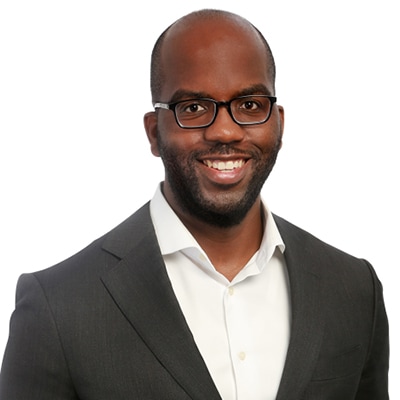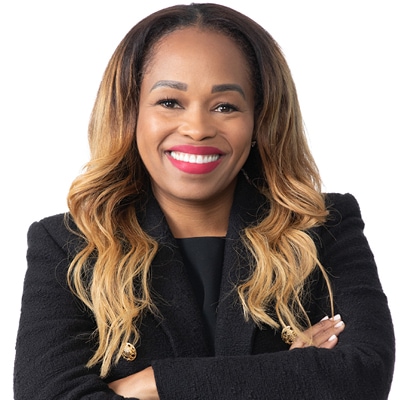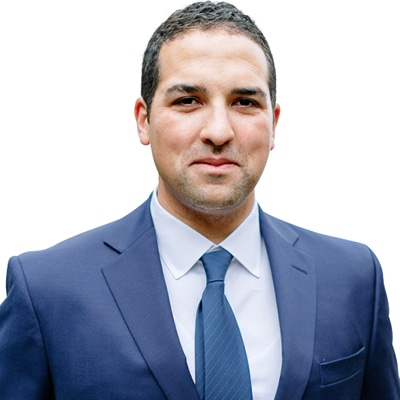This month marks the one-year anniversary of the McKinsey Institute for Black Economic Mobility, our research institute and think tank dedicated to advancing racial equity and inclusive growth. Over the course of the year, the institute has focused on its mission to help private-, public-, and social-sector leaders take coordinated action to accelerate Black economic development.
The institute’s work has included publishing in-depth research on the racial wealth gap, increasing Black representation in the workforce, the impact of COVID-19 on Black livelihoods and more. It has also convened leaders to discuss best practices and partnered with more than 20 organizations across industries to improve the economic mobility for Black individuals and communities.
As we look to 2022, we spoke with some Institute leaders about lessons from the past year, what’s next, and how organizations can best embed racial equity into their long-term planning.
Duwain Pinder

It’s been fascinating to see the evolution of our research go from being more reactive to taking on a more proactive lens. Before we launched the Institute, we had published an article on the effect of COVID-19 on Black lives and livelihoods, which was, of course, extremely topical at the time. Yet since then, we’ve become more proactive in researching where the private sector can engage to accelerate Black economic mobility. For example, we’ve partnered with our practices, like Agriculture on ways to support Black farmers, Education on the role of HBCUs, and Retail on how brands can meet the needs of diverse consumers.
Through this work, we’ve seen the Institute’s impact become a force multiplier with more colleagues engaged and looking to embed our findings into the long-term strategies of their clients. Our work is beginning to change the way our entire firm operates and interacts with clients.
Tiffany Burns

For so long, there’s been an aspiration for a fact base that can give businesses the rationale for what they should do as it relates to racial equity. The institute has supported that by taking something like inclusive growth and articulating the magnitude of its opportunities in a very analytical and structured way.
Ninety percent of organizations have stated they want to take action, and we’ve seen that much of this happens when the framing of the problem along with the financial opportunity are clear. When you see a client document with a roadmap anchored in analysis that we’ve done, that’s when you know we’ve had impact. The demand for such insights is only going up along with the desire to expand the institute through partnerships with broader corporate entities and industry organizations.
Monne Williams

Quick wins don’t work. These are systemic issues that have taken generations of people to ingrain into society. The sobering moment came when working on our ‘Race in the workplace’ report that showed it would take nearly a century for Black workers to reach talent parity, or 12 percent Black representation in the US private sector.
For organizations to begin to dismantle these inequities, having a multi-pronged plan that looks beyond the hiring of Black people to also consider aspects like fair promotions and entire career trajectories is key. It means thinking outside the walls of your company to consider factors like supplier strategy to ensure your products and services are available to a broader consumer base, or office location to close the gap between high-growth geographies and predominately Black neighborhoods.
As we think about what’s next for the Institute, we will be especially focused on how we can be active participants and conveners among the private, public, and social sectors to help drive knowledge and best practice sharing—something that’s been lacking for far too long.

McKinsey Institute for Black Economic Mobility
Ammanuel Zegeye

Beyond the moral imperative of racial equity, what’s been most powerful to come from the Institute’s research is the strong economic case for it. Once you combine the two and put it into quantitative and qualitative ways to capture what’s going on, it’s really hard to ignore.
For example, our Black representation in film and TV report showed that the industry is missing out on $10B in revenue annually as a result of fewer Black-led stories, underfunding, and undervaluation once ideas are shared. Money is being left on the table, and people understanding that is a huge driver for action. We’ve had over 100 client conversations following this report on how to have impact in this sector. The question for leaders is now thinking whether racial equity should be a differentiator or table stakes.
Shelley Stewart III

Embedding racial equity into long-term, strategic planning requires institutional change and investment. For example, ‘The economic state of Black America’ found that more than half of the $226 billion wage gap that exists between Black and White Americans was concentrated in just 20 industries.
Such insights provide industry leaders with a solid starting point so they can thoughtfully pursue efforts that are most impactful in improving Black economic mobility. One way is by increasing representation of underrepresented groups within their organizations, especially among the leadership ranks, and evaluating their company’s current relationships with these groups as consumers.
I’m optimistic that companies are leaning into these conversations, and we’re seeing strong indications that significant time and resources are beginning to be committed to issues of racial inequity. Yet, we're still at the very beginning of the journey. There remain a lot of siloed efforts with many people doing this work because it interests them in the moment. To meaningfully address issues of this magnitude, however, we need to ensure collective and sustained action.